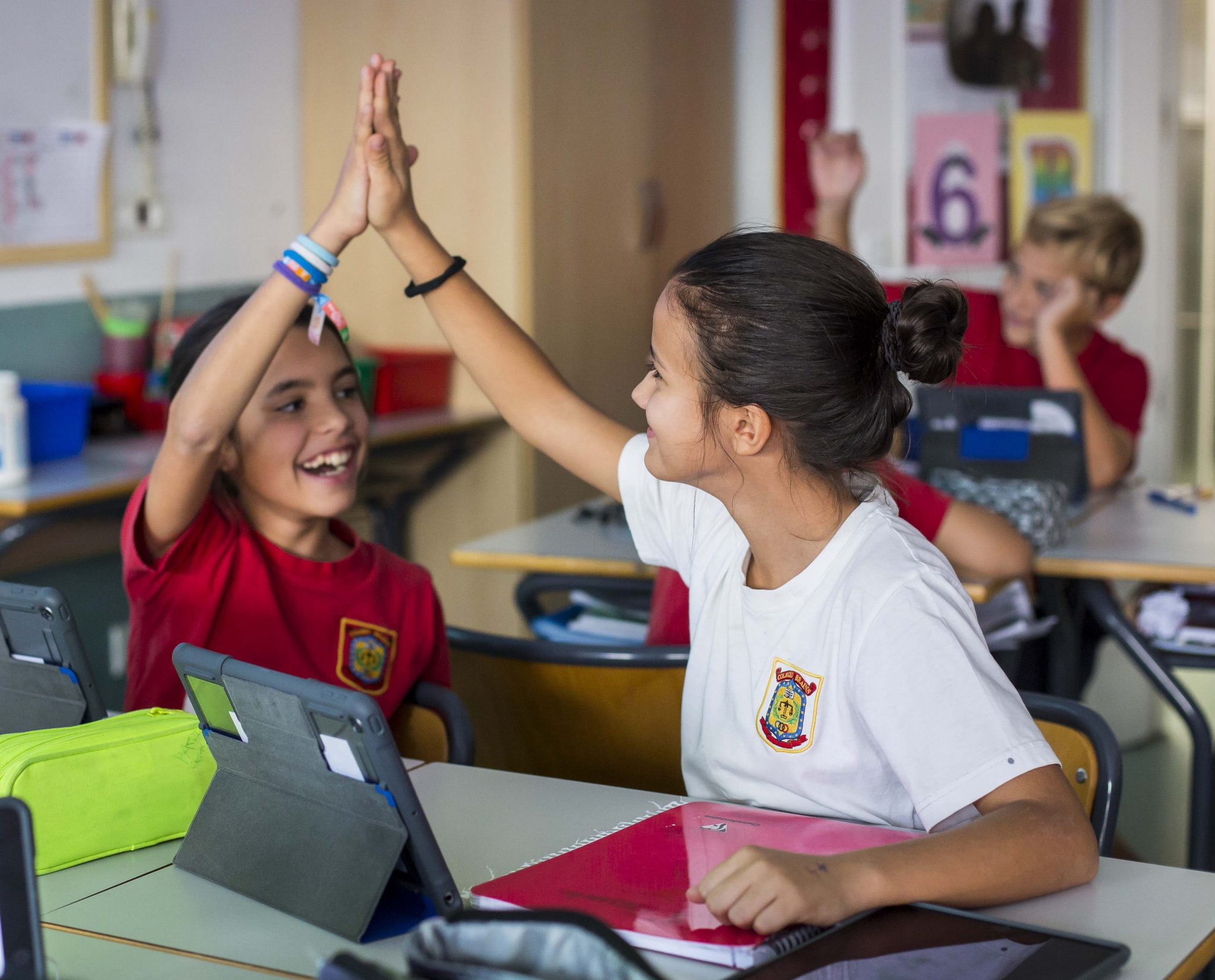Primary Education
Inquirers, curious, creative, supportive, with an international mentality… in Primary our students discover their potential, playing a key role in their own learning process.
Independent and self-assured
In Primary Education we work on independence, improve language skills, gain personal and academic knowledge and discover the world through active methodologies that allow us to understand concepts practically and realistically. In addition, our students practice daily sport to promote a healthy lifestyle.

School years in Primary Education
The international education project for Primary Education in our schools allows students to develop an open mentality, discovering all about collaborative work, personalised learning, communication and creation, critical thinking and interaction with the real world.
Primary 1 and 2 (ages 6-8)
Education at this age focuses on laying the foundations for oral and written communication both in English and Spanish. They also start to learn more technical vocabulary in different areas (including mathematical or scientific terms) and their curiosity arouses through experiences set by the investigation standards in the classroom which they will apply in future learning.
Primary 3 and 4 (ages 8-10)
In these school years, students strengthen their reasoning skills and begin to acquire historical and geographical knowledge, in addition to developing critical thinking. Their oral and written expression also start to take shape, improving their communication skills.
Primary 5 and 6 (ages 10-12)
In 5th and 6th year, our students connect to the real world and perfect the scientific method based on creativity, research and the ability to solve everyday problems.
Philosophy's School
Introduction to Philosophy at Brains International School is a non-assessable subject, based on skills as opposed to content, which takes place twice a month. Children take part in conversations where there are no right or wrong answers and the most important thing is the skills they learn on the way. This is a working dynamic we repeat frequently in order to internalise speaking skills, learn to be tolerant and adopt a critical stance that allows them to form their own opinions in the future without being influenced by others.